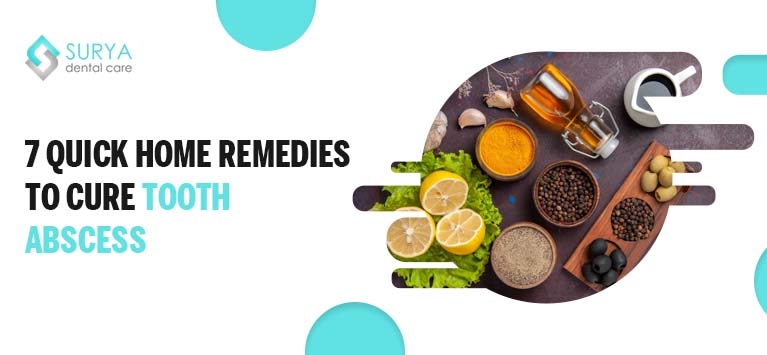Do you have a dental abscess? Whether it results from poorly treated decay or bacterial infection, a visit to the dentist is necessary. But while waiting to make an appointment, there are many natural remedies to help you be patient. Among them, the most effective is, without hesitation, essential oils! These special oils, like tea tree or clove oil, can help fight the infection and make the pain a bit more manageable. In this blog, we’ll talk more about dental abscesses and how these natural remedies, especially essential oils, might give you some relief until you can see your dentist.
What is Tooth Abscess?
A tooth abscess is a painful condition caused by bacterial infection inside a tooth, usually resulting from damage like a chip or break. If left untreated, the infection can lead to the accumulation of pus, causing swelling and potential spread to the gums or jawbone. Common symptoms include throbbing pain, swelling, and sensitivity to hot or cold. Dental intervention, such as draining the abscess and addressing the underlying issue, is crucial for effective treatment and preventing further complications. Regular dental care helps prevent the development of tooth abscesses.
Causes of tooth abscess
A tooth abscess is caused by bacteria that spread to the gum (infection) surrounding the tooth or to the tooth pulp following tooth decay or gum disease. The following are risk factors for the development of a dental abscess:
- Poor oral hygiene
- Excessive sugary foods and beverages intake
- Pre-existing dental problems
- Unsatisfactory dental interventions (root canal, implant, or filling)
- Mouth dryness
- Addiction to alcohol
- weak Immune system
- Diabetes, bacterial cellulitis, gastric reflux, and other diseases
- Smoking
Symptoms of tooth abscess
- Intense pain in the teeth or gums is the primary symptom; it can develop quickly and typically worsen. On the same side as the tooth, it can also impact the ear, jaw, and neck.
- Swollen, inflamed red gums
- Facial edema
- Cold/heat hypersensitivity
- Halitosis
- Fever
- General malaise
- Predisposition to tooth loss
- Neck lymph node swelling
- Jaw muscle spasm
How to fight an abscess at home?
While it’s essential to consult a dentist for proper treatment of a dental abscess, there are some home care strategies to reduce severity. Here are a few tips
1. Saltwater Rinse:
A saltwater rinse is one of the easiest and most effective home remedies for treating an abscess. It can help drain the abscess and reduce discomfort. Mix equal parts of salt and warm water (a 1:1 ratio) to prepare the solution. Gargle and swish this solution in your mouth twice to thrice daily.
2. Baking Soda and Saltwater Solution:
A mixture of baking soda and salt water is a powerful antibacterial mouth rinse. It eliminates bacteria and helps in draining the abscess from gums, which provides pain relief. Use this solution as a mouthwash several times a day.
3. Garlic Paste:
Garlic is known for its medicinal properties, thanks to allicin. It can be used to alleviate dental abscess symptoms. You can either chew a raw garlic clove or create a paste by grinding it and applying it gently to the affected area.
4. Cold Compress:
To alleviate discomfort and minimize inflammation, employing a cold compress proves effective. Here’s the method: Wrap ice cubes in a clean cloth and apply the compress to the afflicted region. You can use the compress every 15 minutes and repeat this process multiple times throughout the day.
5. Fenugreek tea:
The incredible antibacterial properties of fenugreek and its extensive historical usage for wound healing and inflammation reduction make it a valuable remedy. To harness its benefits, begin by brewing a fenugreek tea. Warm a cup of water in a saucepan and blend in a teaspoon of powdered fenugreek. After the mixture reaches a comfortable temperature, gently administer a small quantity to the troubled region using a cotton ball. This routine is suitable for repetition up to thrice a day.
6. Clove essential oil:
Ancient wisdom has long embraced clove oil to address toothache discomfort. This essential oil possesses antibacterial and anti-inflammatory attributes. It is accessible in two forms: concentrated and diluted. Dilution is imperative for the concentrated oil (3 to 5 drops of essential oil in 30 grams of carrier oil). You can use clove oil in different ways to help your toothache. You can put a little bit on a cotton ball or swab and gently touch it to the hurting area. Or, you can mix a few drops of clove oil into a small glass of water to make a mouthwash. This helpful trick can be done up to three times a day to make your tooth feel better.
7. Thyme essential oil:
Within the world of essential oils, thyme oil is a versatile remedy that can effectively eliminate parasites, combat bacterial threats, and alleviate inflammation. You can conveniently procure it from various local and online outlets. Before using it, it is recommended to dilute thyme oil with a carrier oil. There are diverse methods to incorporate thyme oil into your routine. For instance, using a cotton swab or ball, you can gently administer thinned thyme essence onto the concerned region. Alternatively, craft a homemade mouth rinse by blending a couple of thyme oil droplets with a glass of water, use thyme oil a maximum of three times a day.
In conclusion
Tooth abscesses can lead to significant discomfort, yet home remedies such as saltwater rinses and essential oils like clove and thyme may provide temporary relief from the pain. While these remedies can support oral health, it’s important to emphasize that these self-care methods cannot replace the need for professional dental help. Dental abscesses require proper treatment and evaluation by a licensed dentist to address the underlying infection and prevent potential complications.



